*NURSING > TEST BANKS > Appraising Quantitative Research Test Bank Question and Answers Rated A+ (All)
Appraising Quantitative Research Test Bank Question and Answers Rated A+
Document Content and Description Below
MULTIPLE CHOICE 1. The critique of a quantitative research report should include what? a. Applying the findings in clinical practice b. Summarizing the major steps of the research process c. Const... ructively evaluating a study for its strengths and weaknesses d. Determining whether the phenomenon studied by participants can be recognized as their own ANS: C Feedback A Applying findings in clinical practice is performed after critiquing a study’s strengths. B Summarizing the steps of the research process is not equivalent to constructive evaluation. C Research critique is constructive evaluation of a study’s strengths and limitations. D Research critique is performed by an objective reviewer, not by participants. DIF: Cognitive Level: Understanding (Comprehension) REF: Page 350 2. Which statement most accurately evaluates a quantitative research study report’s scientific merit? a. The sample size was appropriate for the statistical tests used. b. The study had one independent variable and two dependent variables. c. Data described in narrative form within the text could have been more concise in a table. d. The discussion was excessive in length. ANS: A Feedback A Describing appropriate use of sample size for pertinent statistical tests is an example of scientific merit. B Explaining the number of variables is not an example of scientific critique. C The critique of narrative display is an example of stylistic comment. D The comment about length of discussion is an example of stylistic critique. DIF: Cognitive Level: Understanding (Comprehension) REF: Page 348 3. Both the problem statement and the purpose of a quantitative research study report should address what? a. Generalizability b. Sampling procedure c. Implications for future research d. Relationship between the variables ANS: D Feedback A Generalizability would be addressed by research design and sampling procedures. B The sampling procedure is usually described in the methods section. C Implications for future research are developed after study findings are obtained. D The problem statement and the purpose both specify relationships between study variables. DIF: Cognitive Level: Understanding (Comprehension) REF: Page 348 4. Where in a report of a quantitative research study would a nurse researcher expect the gaps or conflicts about the phenomenon studied to be identified? a. Analysis of data b. Research design c. Problem statement d. Review of the literature ANS: D Feedback A The data analysis section describes how obtained data were organized and analyzed. B The research design section explains the design chosen by the researcher and how it will be used. C The problem statement specifies the focus of the study and the significance of the problem. D A literature review describes what is known, as well as what is not known about a phenomenon being studied. DIF: Cognitive Level: Remembering (Knowledge) REF: Page 388-389 5. A study abstract includes the following statement: “There was a negative relationship between infants with difficult behavioral styles and maternal involvement.” The most accurate interpretation of the statement is what? a. The more difficult the infant was, the more involved the mother was. b. The more difficult the infant was, the less involved the mother was. c. The less difficult the infant was, the less involved the mother was. d. There was no relationship between infant behavior and maternal involvement. ANS: B Feedback A This is a positive variable relationship and does not match the abstract statement. B The statement involves an inverse relationship; more infant difficulty, less maternal involvement. C This is a positive variable relationship and does not match the abstract statement. D This is a statement of no relationship between variables and does not match the abstract statement. DIF: Cognitive Level: Analyzing (Analysis) REF: Page 378 6. A comparison study investigating the levels of depression in blind and sighted adolescents does not use a hypothesis. Does the lack of a hypothesis in this study represent a weakness? Why or why not? a. Not a weakness; study is descriptive b. Not a weakness; study is quasi-experimental c. Is a weakness; study is descriptive d. Is a weakness; study is quasi-experimental ANS: A Feedback A The title suggests a descriptive study, and a hypothesis is not necessary. B The study title is descriptive comparative and is not quasi-experimental. C A hypothesis is not necessary for a descriptive study. D The study is nonexperimental, so a hypothesis is not necessary. DIF: Cognitive Level: Analyzing (Analysis) REF: Page 374 7. Why would a study involving continuous handrail support, oxygen uptake, and heart rate in women during submaximal step treadmill exercise be quasi-experimental in design versus experimental? a. The sample size was small. b. Randomization was not used in sample selection. c. The dependent variables were not manipulated. d. The independent variables were not manipulated. ANS: B Feedback A The size of the sample does not primarily affect the nature of the study design. B The major difference between experimental and quasi-experimental designs is lack of randomization in sampling selection. C Dependent variables or outcome variables are not manipulated. D Independent variables (or the treatment) must be manipulated to conduct an experiment or quasi-experiment. DIF: Cognitive Level: Analyzing (Analysis) REF: Page 378 8. What would make a study researching the levels of depression occurring in blind and sighted adolescents nonexperimental versus experimental in design? a. The sample size was small. b. The two samples were not equal in size. c. The dependent variable was not manipulated. d. The independent variable was not manipulated. [Show More]
Last updated: 2 years ago
Preview 1 out of 13 pages

Buy this document to get the full access instantly
Instant Download Access after purchase
Buy NowInstant download
We Accept:

Reviews( 0 )
$12.00
Can't find what you want? Try our AI powered Search
Document information
Connected school, study & course
About the document
Uploaded On
Sep 01, 2021
Number of pages
13
Written in
Additional information
This document has been written for:
Uploaded
Sep 01, 2021
Downloads
0
Views
164


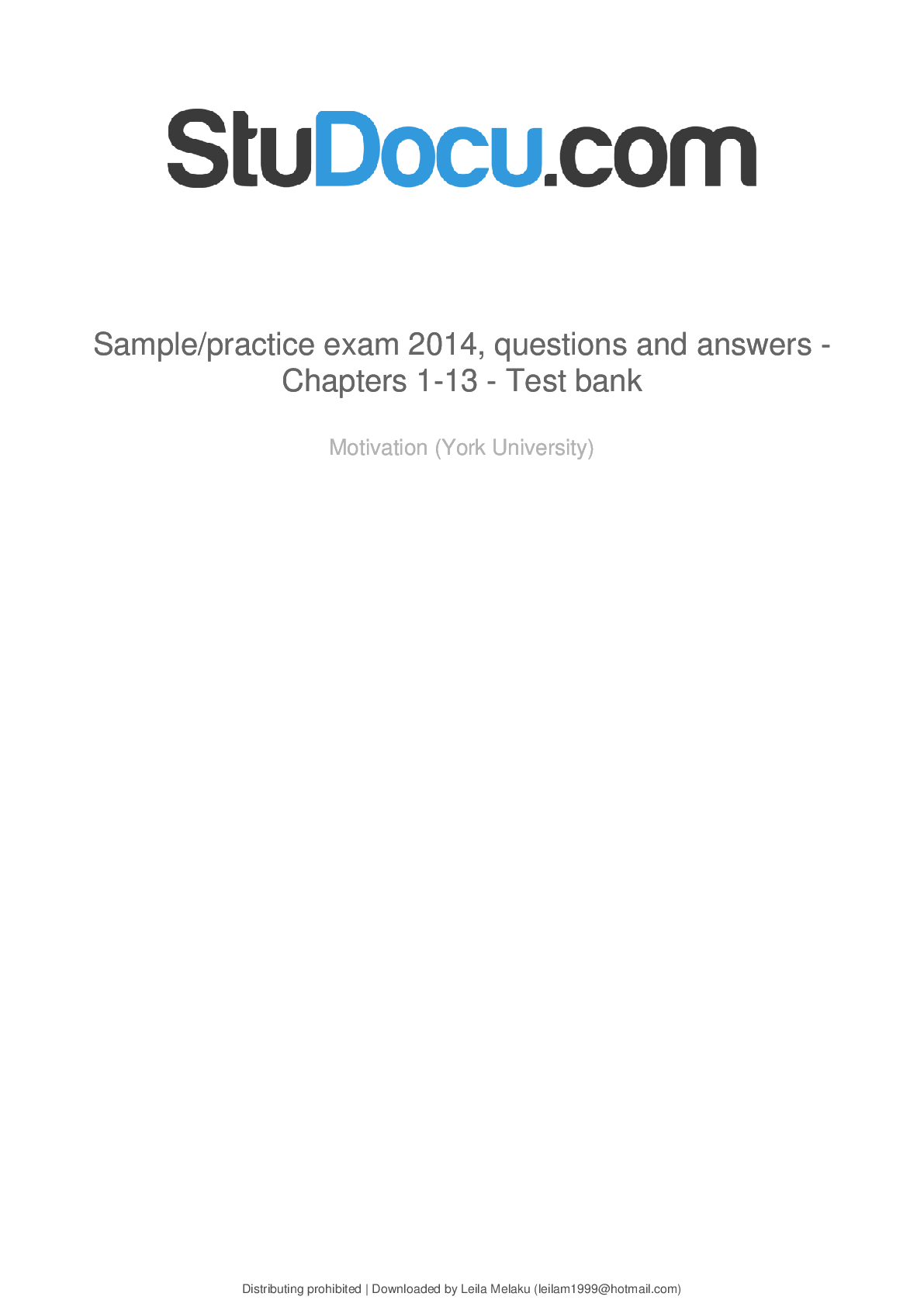
.png)

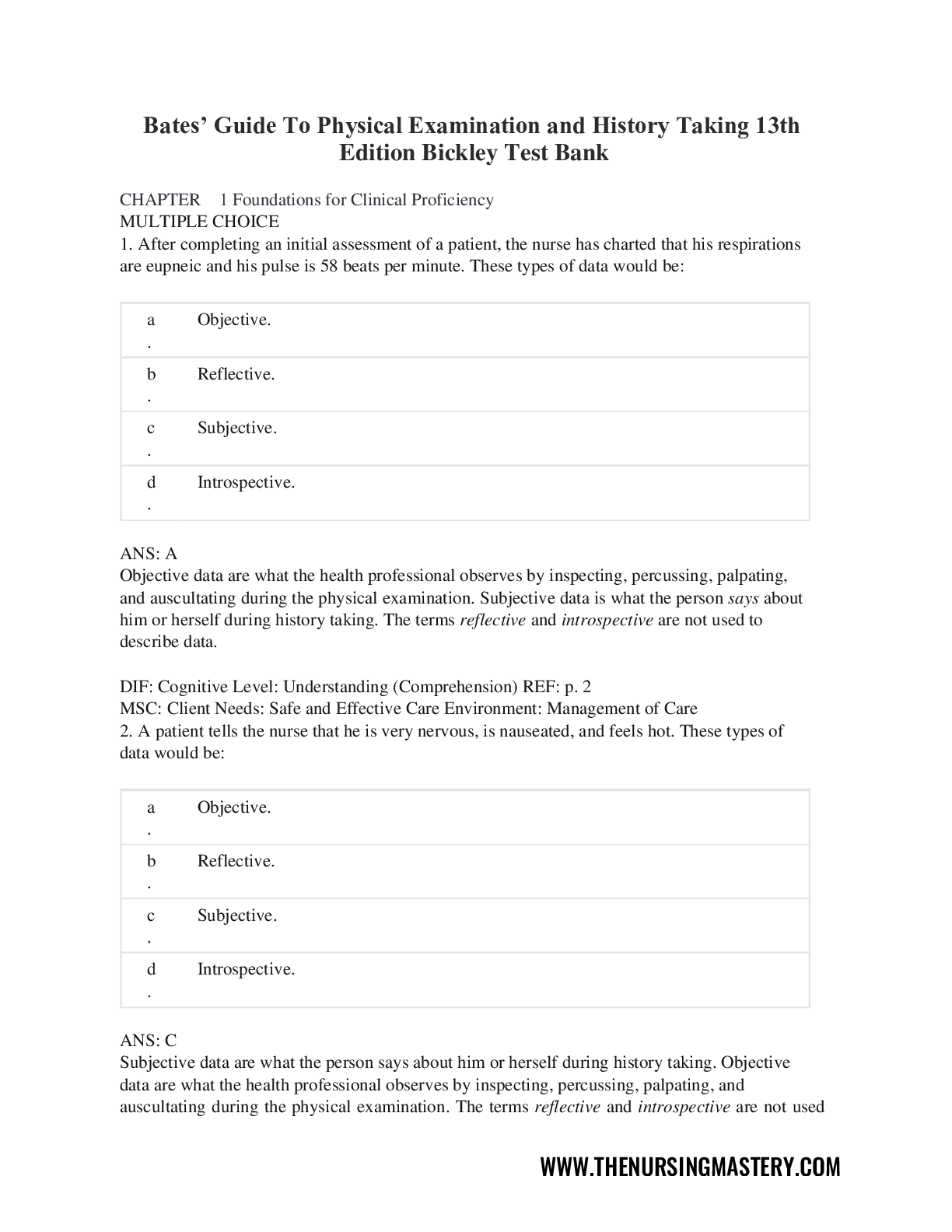
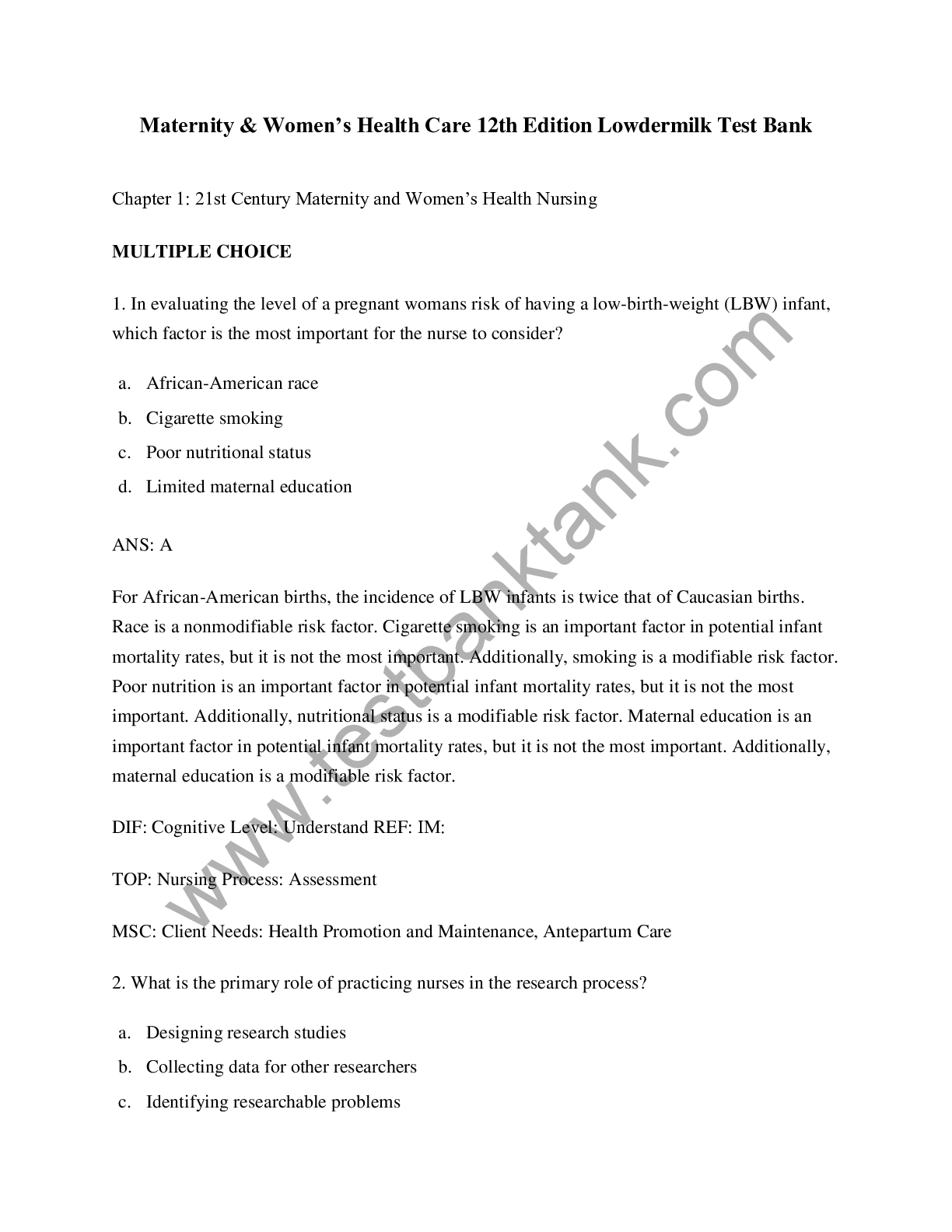
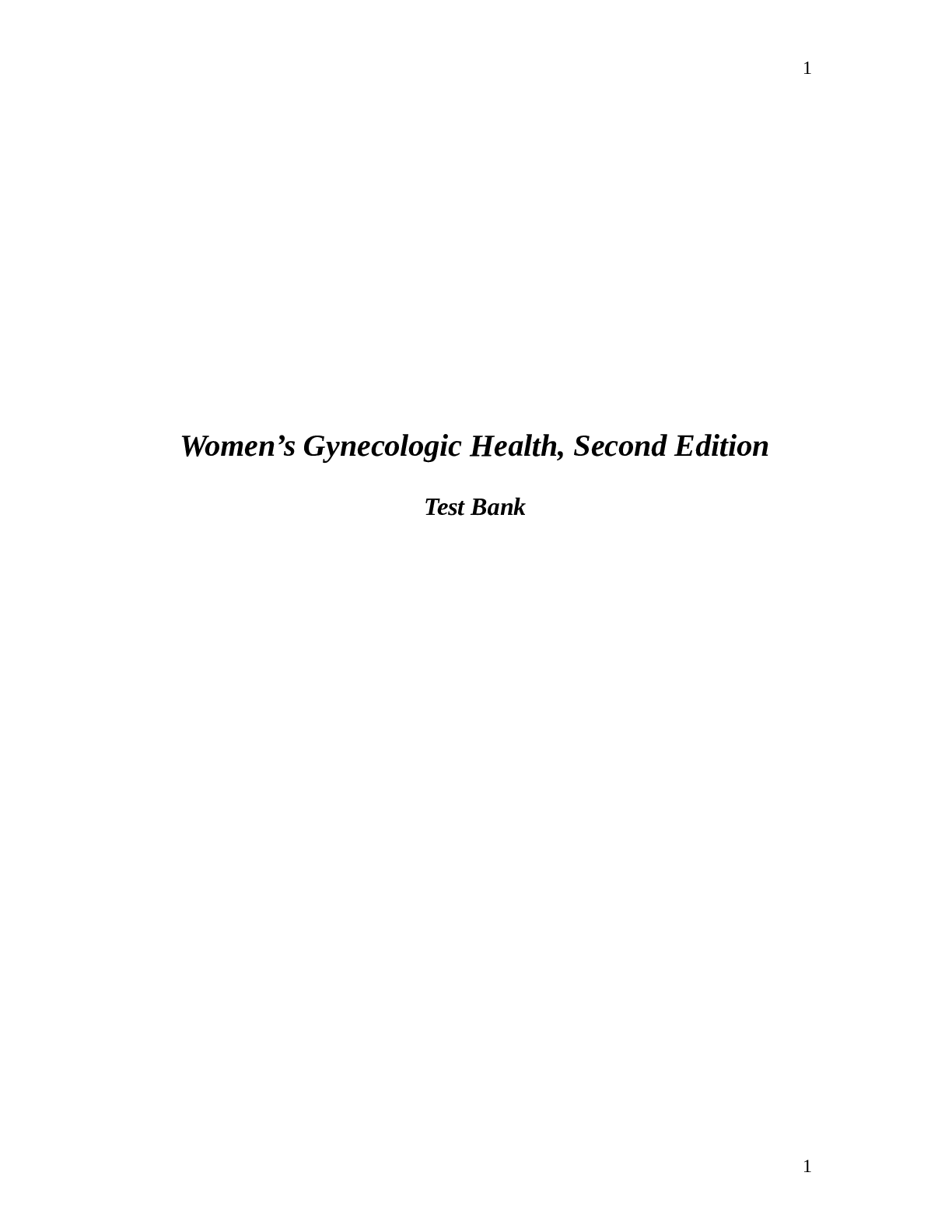


.png)
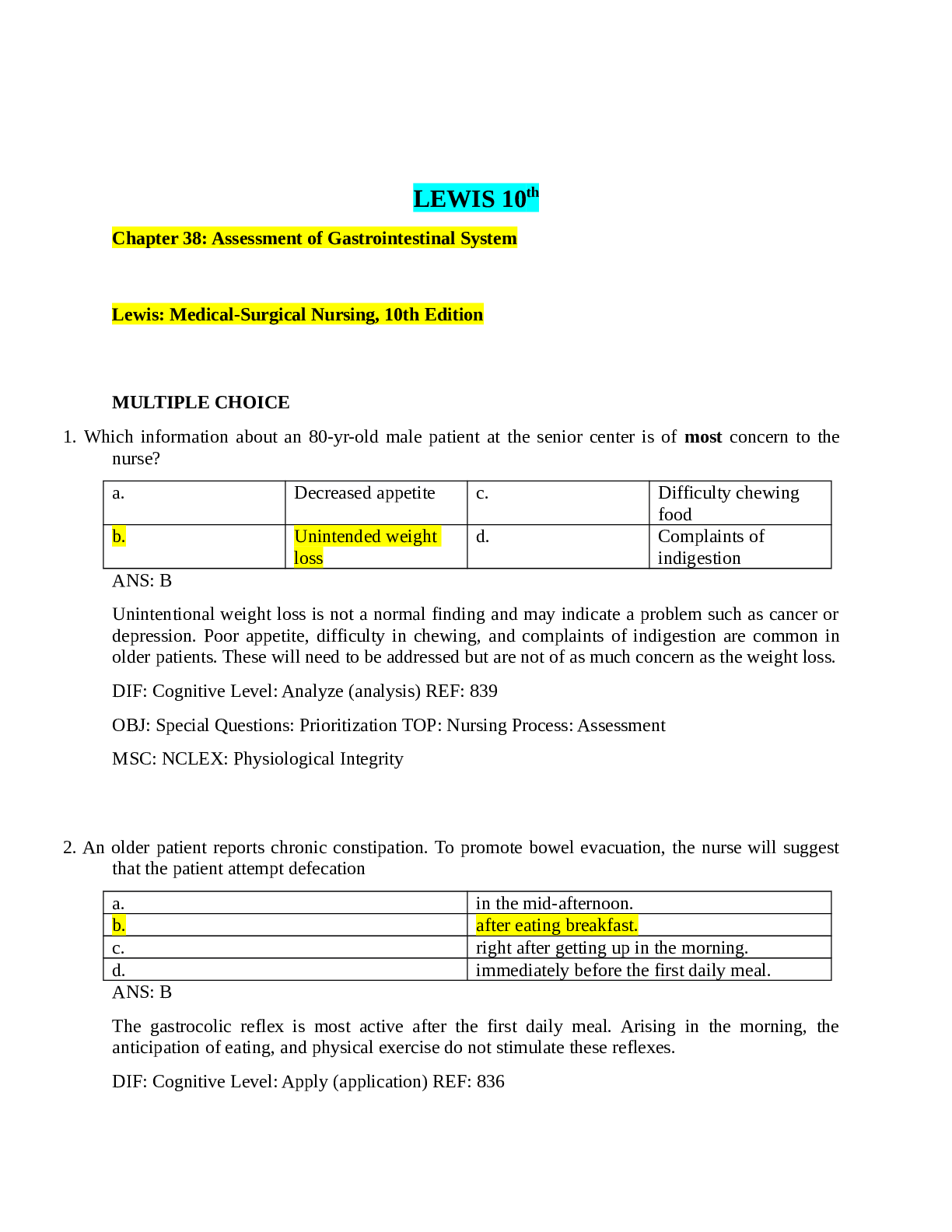

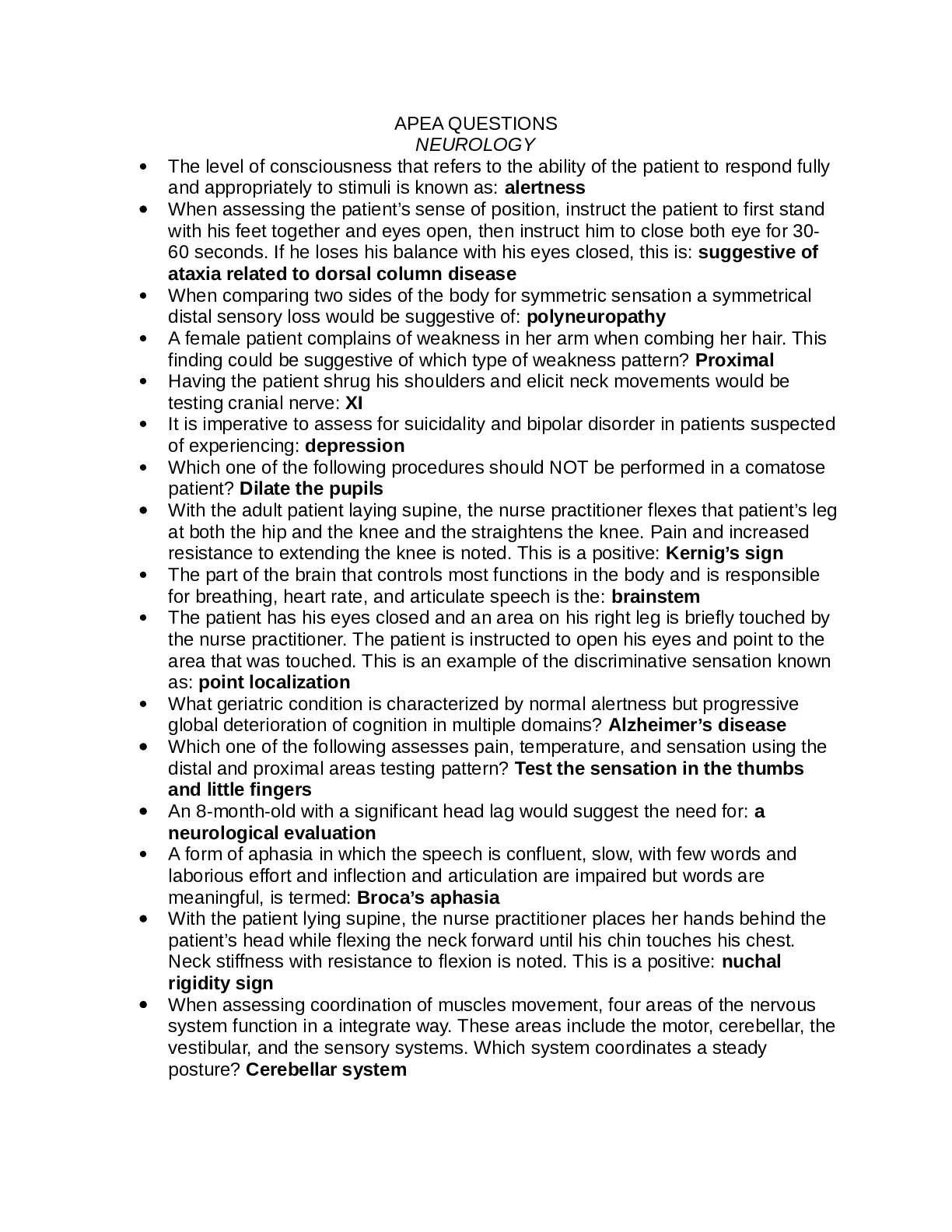

_removed.png)
.png)
.png)
.png)
.png)
.png)




